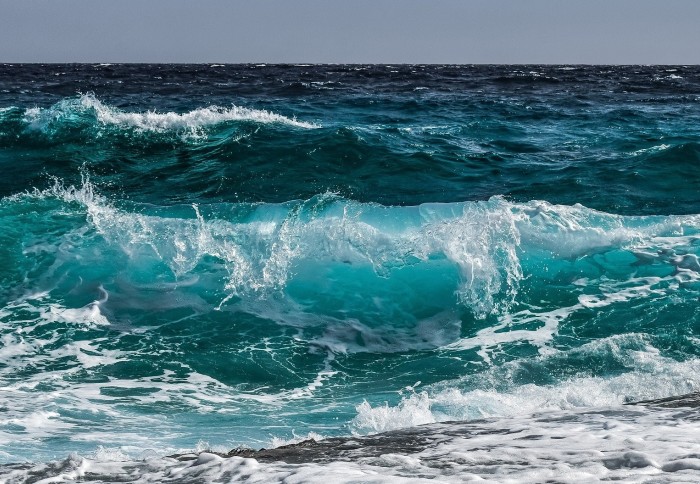£10M project aims to unlock untapped potential of ocean renewable energy fuels
by Sara West

An innovative research project will investigate the potential of harnessing offshore wind and marine renewable energy.
Scientists from Imperial College London will collaborate in the multi-disciplinary Ocean-REFuel: Ocean Renewable Energy Fuels project, which will explore ways of converting ocean energy into fuels for use in heating, energy storage and difficult to decarbonise transport applications, and explore storage solutions for intermittent renewable energy such as wind.
The consortium will be led by the University of Strathclyde and includes world-leading research teams from the Imperial and the Universities of Nottingham, Cardiff, and Newcastle. The project is funded by the Engineering and Physical Sciences Research Council, industry, and the partner universities, who have also pledged a total of nine linked PhD studentships.
The five-year collaboration, which involves 28 industrial partners, including BP, Scottish Power, National Grid, ENI along with the UK Health & Safety Executive, will also produce a Blueprint for the first integrated Ocean Renewable Fuel production facility.
Harnessing ocean energy
The UK government has the ambition for offshore wind to produce more than enough electricity to power every home in the country by 2030, based on current electricity usage, but there remains extremely large ocean energy potential which can never be fully utilised by the electricity network.
“As shown through our world-leading offshore wind sector, we are not only capitalising on the clean energy potential around our coastline but also the opportunities for investment, jobs creation and regional growth." Anne-Marie Trevelyan Minister for Energy, Clean Growth and Climate Change
New technologies and systems need to be developed to avert the worst consequences of climate change and the Ocean-REFuel project will directly address challenges associated with energy storage, renewable heat and the decarbonisation of transport such as road, marine and aviation.
The project will explore storage solutions, such as hydrogen and ammonia, that can help manage the issue of intermittent supply. It could also allow the stored energy to be fed back into the grid, and potentially channel renewable energy to difficult-to-decarbonise sectors such as renewable heat and transport, which account for more than 60% of UK energy demand.
Minister for Energy, Clean Growth and Climate Change Anne-Marie Trevelyan said: “The waters around the UK offer abundant prospects for clean energy. Ensuring that we can tap the full potential of our natural resources will be vital in meeting our bold climate change commitments.
“As shown through our world-leading offshore wind sector, we are not only capitalising on the clean energy potential around our coastline but also the opportunities for investment, jobs creation and regional growth. Projects like Ocean-REFuel are helping us fulfil that potential as we build back greener.”
Transition to net zero
“By addressing key research challenges to the wider use of offshore wind energy and integrating it into green hydrogen production, the Ocean-REFuel project will help us to engineer the radical energy transition needed to deliver on our Net Zero commitment". Dr Lucy Martin Deputy Director for Cross-Council Programmes at EPSRC
The Ocean-REFuel project builds on EPSRC investment of more than £35 million into offshore wind power over the past decade and Dr Lucy Martin, Deputy Director for Cross-Council Programmes at EPSRC, said: “The UK is the world’s largest producer of offshore wind energy but there is vast potential yet to be tapped into, as outlined in the Prime Minister’s plan to quadruple the amount we produce by 2030 including the opportunity to use offshore wind to help meet our green hydrogen production needs.
“By addressing key research challenges to the wider use of offshore wind energy and integrating it into green hydrogen production, the Ocean-REFuel project will help us to engineer the radical energy transition needed to deliver on our Net Zero commitment and also enhance the sustainability and resilience of the UK energy system.”
Professor Nilay Shah, Head of Chemical Engineering and the Imperial lead for the project, added: “We are delighted to be partners in this project. It is an excellent fit with our strategic priorities in clean energy and hydrogen research and has the potential to put the UK at the forefront of harvesting and converting ocean-based energy resources.”
-
This article is based on the press release issued by the University of Strathclyde.
Main image: Pixabay
Article supporters
Article text (excluding photos or graphics) © Imperial College London.
Photos and graphics subject to third party copyright used with permission or © Imperial College London.
Reporter
Sara West
Communications Division